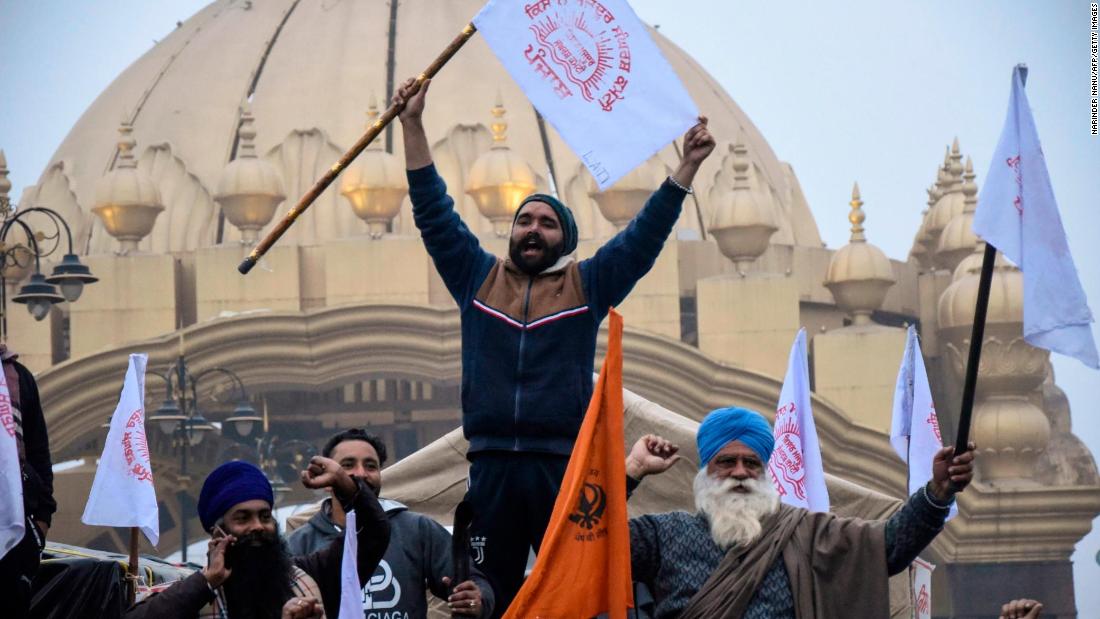
Farmer protests in India: The Supreme Court has blocked three controversial agricultural bills
The court said in an order issued Tuesday that the decision to suspend the laws “may mitigate the feelings of harm to farmers and encourage them to come to the negotiating table with confidence and good faith.”
The laws were first passed in September. For decades, the Indian government has offered farmers guaranteed prices for some crops, providing long-term certainty that allows them to make investments for the next crop cycle. Instead, new laws, initiated by the government of Prime Minister Narendra Modi, have allowed farmers to sell their goods to anyone at any cost – giving them more freedom to do things like direct selling to buyers and selling to other states.
But farmers have argued that the new rules will make them worse by making it easier for companies to exploit agricultural workers and help big firms lower prices. While farmers can sell crops at high prices if demand is there, on the contrary, they may face difficulty in meeting the minimum price in years when there is too much supply in the market.
More than 100,000 people have protested against the laws since late November.
Sit-ins continued for days along the three borders of New Delhi. Farmers blocked roads and set up makeshift camps, some sleeping on the road or in their tractors. They arrived from different states to take part in the mass protests, and at times they clashed with the police.
All the while, the government has had eight rounds of talks with leaders of more than 30 farmers’ unions that are opposing the laws – but the talks yielded no result.
The stalemate prompted the Supreme Court to suspend the laws on Tuesday and ordered the formation of a four-member mediation committee to help the parties negotiate in an “appropriate atmosphere.” The Mediation Committee must meet within 10 days and submit its first report within two months of that meeting, according to the order.
The court also said on Tuesday that the minimum support price protection would be kept until further orders – one of the primary points of friction between the government and farmers. Under the court order, “no farmer may be expropriated or deprived of his ownership as a result of any action taken under the farm laws.”
However, the umbrella group representing farmers’ unions, Samyukt Kisan Morcha, has repeatedly said that it will not engage in any court-appointed mediation – and confirmed this point after the new order was issued.
“This is a mischief to the government, they want to take the pressure off their shoulders, so they asked to form this high court committee which we are against,” farmer leader Balbir Singh Rajwal told a news conference on Tuesday. All committee members are loyal to the government.
The attorney general representing the government in the case also criticized the Supreme Court order, saying they were “strongly opposed” to any temporary suspension.
The laws have been controversial because agriculture is the primary source of livelihood for about 58% of India’s population of 1.3 billion, and farmers have been arguing for years for a minimum guaranteed price increase. They are the largest electoral bloc in the country – making agriculture a central political issue.

“Totale ninja voor sociale media. Introvert. Maker. Tv-fan. Bekroonde ondernemer. Webnerd. Gecertificeerde lezer.”
